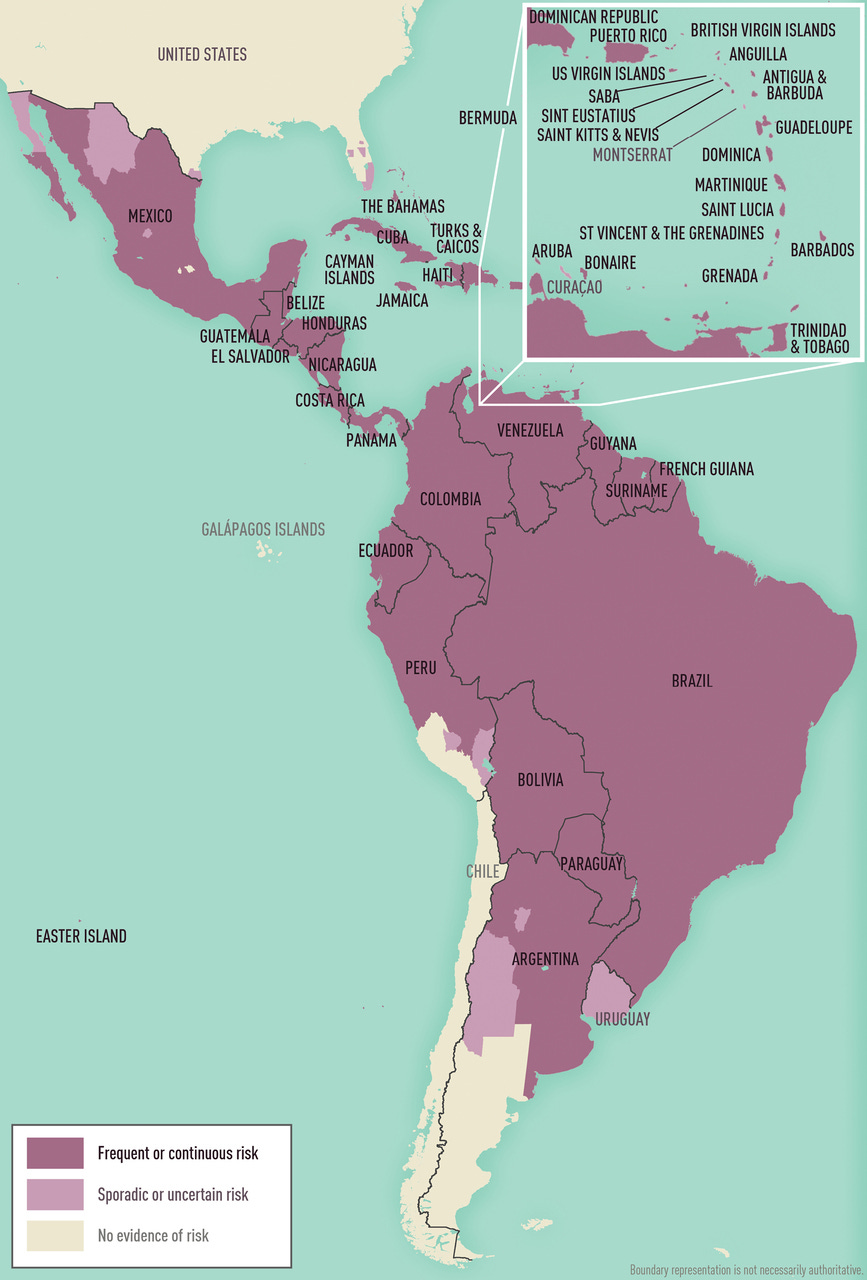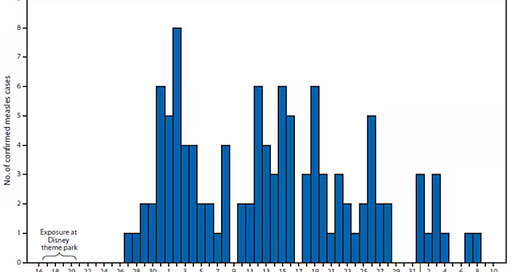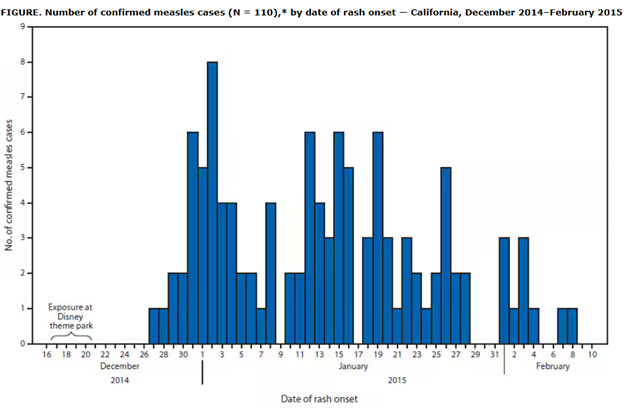The assault on the CDC is underway. The new regime is threatening mass firings and cancellation of grants.
Now, each year CDC’s budget is written in excruciating detail by Congress. I count some 200 specific line items, ranging from $1 million for a National Mesothelioma Registry to $735 million for Emergency Preparedness grants to states. The Executive Branch does not have the authority to just end these programs. The battle over these cuts will go to court, and today no one knows how it will shake out. But I do wonder what would happen if CDC were just to go dark.
A couple of weeks ago, I wrote that state and local health departments need to quickly step up to fill in the gap. I’m doubtful that many will be able to do that, though.
Other than passing money onto state and local health departments, CDC mainly investigates disease outbreaks, collects data, analyzes data, and makes recommendations. What if all that stops?
CDC’s Work
Project 2025 is indignant about CDC’s “arbitrary…exercise of power”. But in fact, almost all of CDC’s recommendations are just that - recommendations, with no force of law behind them. While many organizations take CDC’s suggestions seriously, states, organizations, and individuals can choose to go their own way.
Why bother to make suggestions that are evidence-based but toothless? To help people make smarter decisions. Those people could be: individuals deciding whether a food item is safe to eat; parents trying to protect their children from catching infections at school; doctors trying to give their patients the best care; employers trying to keep their workers safe and productive; city councilmembers responding to constituents panicked about a health risk; or even Presidents wrestling with tough policy decisions.
Here are a few examples of CDC’s analyses and recommendations that I found by trolling the website:
This helps doctors know the best ways to diagnose and treat sexually transmitted diseases:

Here’s an investigation of an outbreak of pneumonia in schoolchildren caused by Mycoplasma pneumonia, an unexpected organism that is treatable with certain antibiotics:

Here’s a graph of overdose deaths, showing that the larger epidemic masks three overlapping waves involving different opioids:

Here’s a map showing the countries where Dengue fever is circulating:

And here’s a graph on trends in teenagers’ use of different tobacco products. E-cigarettes are the most commonly used product, but nicotine pouches are catching on.
CDC followed the tobacco graph with this: “Evidence-based tobacco prevention strategies include price increases, mass media campaigns to educate youths about the harmful effects of all tobacco products, and implementation of comprehensive smoke-free policies that include e-cigarettes.”
I find these analyses and recommendations incredibly useful. I also don’t see them as political - unless you consider the bare mentioning of (without explicitly recommending) tobacco “price increases” or “comprehensive smoke-free policies” to be “woke”.
What Happens If It Goes Away?
If this kind of work helps people make smarter decisions, the absence leads to decisions that are dumber. Like this:
Doctors who are unaware that certain sexually-transmitted bacteria have become resistant may prescribe the wrong antibiotics, hurting not just their patients but also their patients’ sex partners.
Doctors who don’t know that an outbreak of Mycoplasma pneumoniae is occurring in a nearby town may not recognize the unusual disease, leading to the wrong diagnosis and inappropriate treatment.
Emergency room doctors and police, unaware that fentanyl has taken over as the leading cause of drug overdose deaths, may instead spend their energy fighting heroin.
Travelers to the Caribbean may catch Dengue fever because no one has warned them of the risk of being bit by mosquitoes there.
Parents and policy-makers may pay little attention to nicotine pouches until a generation of teens get addicted to nicotine using them.
And - especially these days - people may avoid getting vaccinated because they don’t see any science-based information showing them that the vaccines are safe and protective.
Will Americans See This as a Crisis?
It’s traditional in legislative hearings for officials whose programs are threatened to try to scare the budget-cutters with nightmarish scenarios. People dropping dead in the streets. Children collapsing in parents’ arms. A nation paralyzed in fear.
There are a couple of ugly scenarios that I could paint. But, honestly, the loss of most of CDC’s impressive work wouldn’t be seen as a crisis.
Killing certain programs will lead to disease outbreaks. With RFK Jr. at the helm, vaccination rates will fall, and outbreaks of vaccine-preventable diseases will reliably follow. A safe bet is that measles will lead the way - like a larger version of the Disneyland outbreak of 2014-15, caused by a drop in measles vaccinations in California:
Already, only about 80% of kindergartners in Idaho are protected against measles, so that state is vulnerable today. The coming outbreak should scare people back into getting vaccinated, but some children will have to die to make that point.
And then there’s bird flu. H5N1 influenza has already infected species as varied as chickens, pelicans, dolphins, cows, sea lions, and cats. I have to assume it’s only a matter of time before the virus evolves to spread among the globe’s most populous mammal – humans. If that happens on Trump’s watch, his appointees will bungle the response, and likely many thousands of Americans will die quickly and unnecessarily. That would certainly be ugly.
For the most part, though, people will not notice that our collective ignorance is leading to dumb decisions.
Who would recognize that someone has died because a well-meaning but uninformed doctor prescribed the wrong antibiotic? Who would blame a law enforcement agency or an emergency room doctor for chasing the wrong overdose drug, if no one knew what the right one was? What parent would be outraged by his teenager becoming addicted to nicotine pouches without knowing that it was a national pattern?
Of course, if the CDC withers, mortality rates would increase and life expectancy would decrease. But who would be around to point that out?






This reminded me of something I studied a while back.
What was one of the biggest contributing factors to the development of economic strength and technological discovery in the US, Europe, and parts of Asia after world war 2?
The establishment and strengthening of democracy and freedom focused political and government institutions during and soon after WW2.
They brought people together to work together on a mass scale.
The CDC was one of these institutions.
None of these government institutions are perfect, and checks and balances should be used on them. They do need constant improvement of efficiency and integrity.
But this Trump administration is throwing the baby out with the bathwater.
Completely removing government institutions or disabling them without providing a good replacement at least on the federal or state level is going to have impacts discussed in this article.
I bet most people don’t know the Chemical Safety Board exists, and yet it helps to consistently investigate industrial chemical accidents and to require improvement in industry standards. It is an independent federal agency!
This reminds me of Timothy Snyder, who makes the good point in his book The Road to Unfreedom that we become less free when we become dumber.